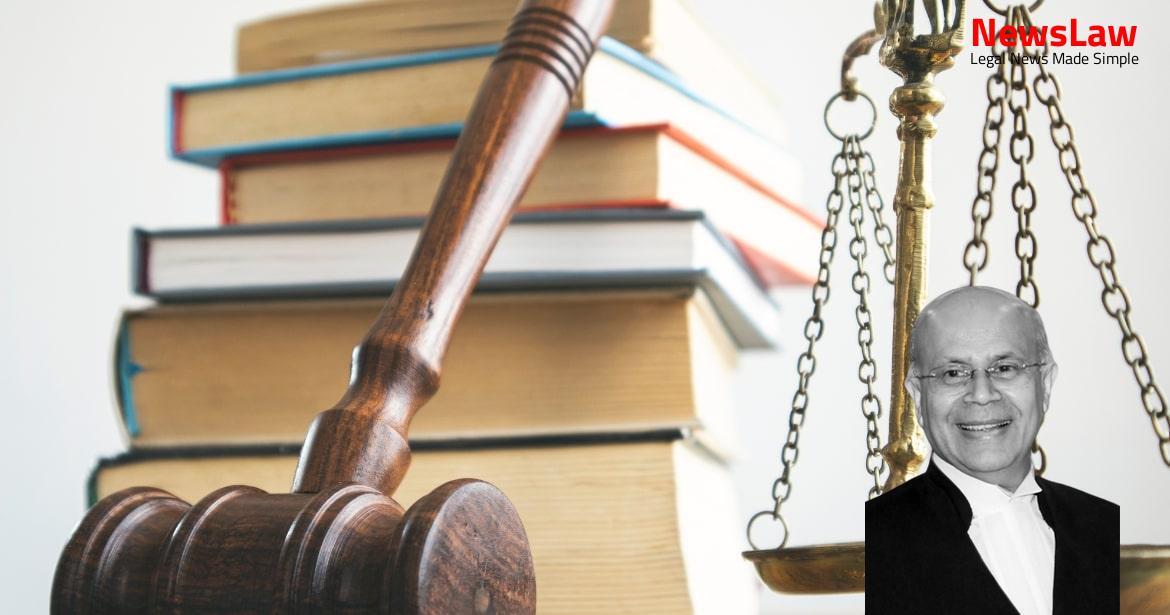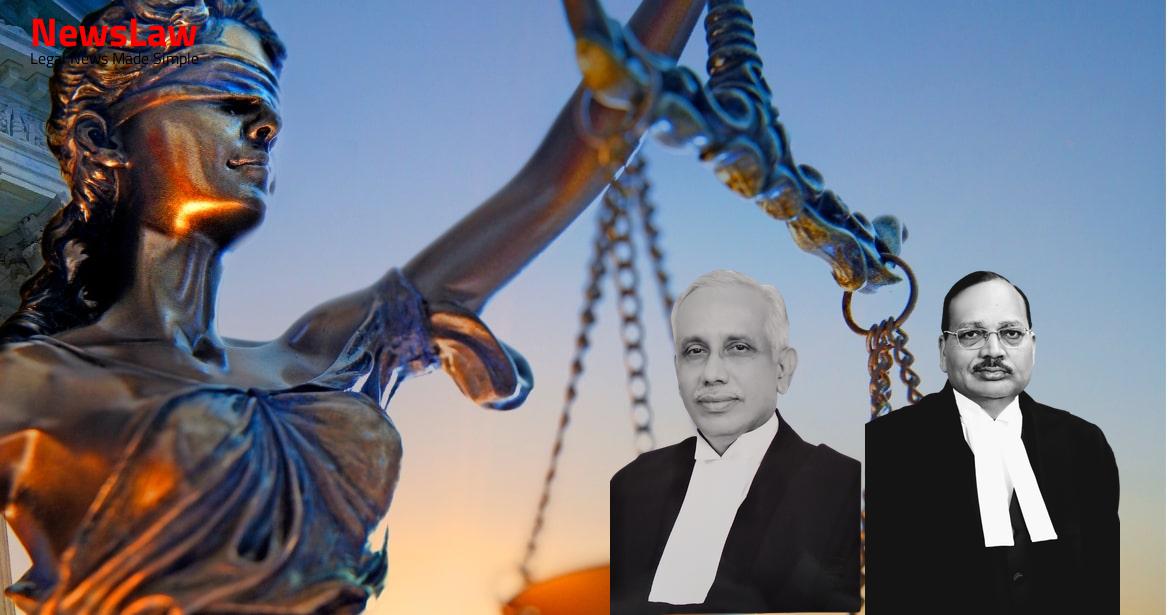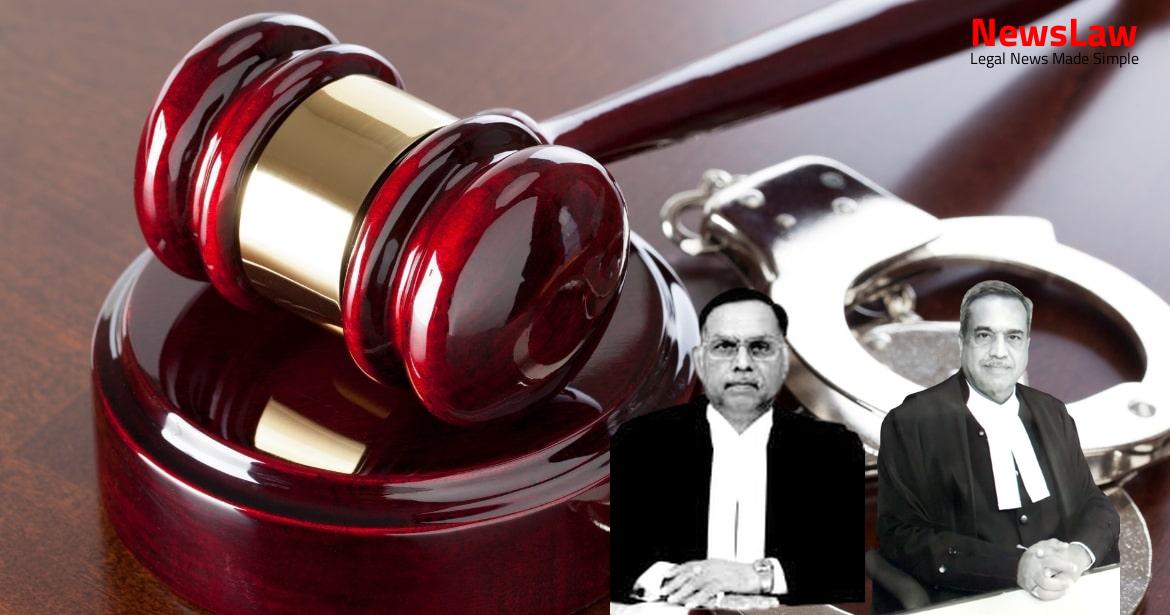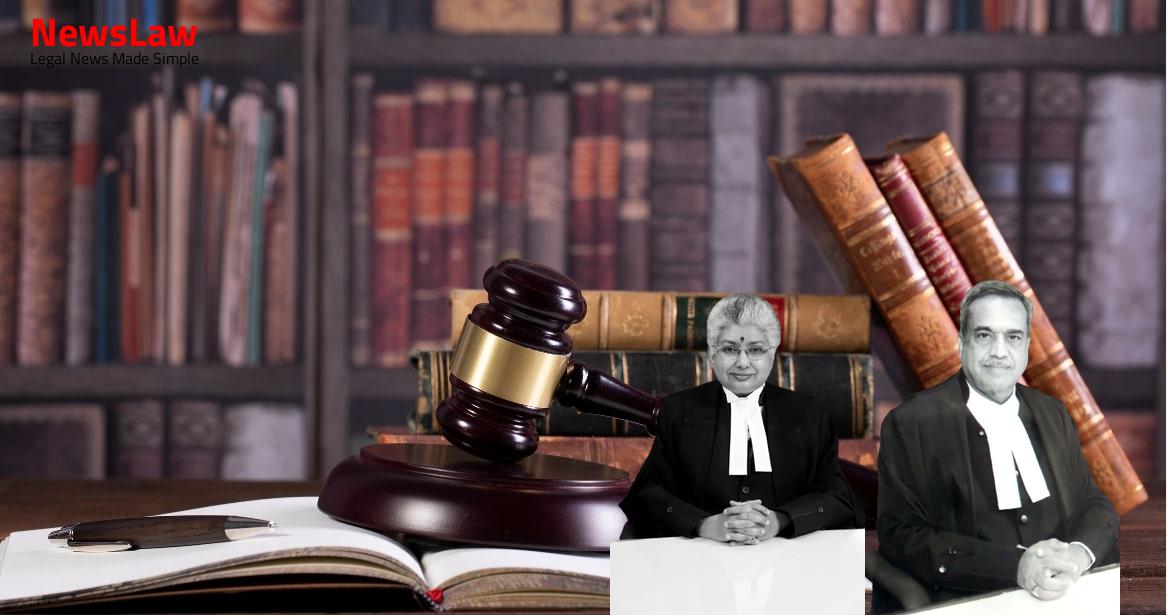Explore the nuances of legal analysis in a recent case where the court’s assessment of evidence and investigative procedures played a pivotal role in determining the outcome. By focusing on the burden of proof, foundational facts, and the standards of establishing possession of contraband, the court’s decision sheds light on the critical aspects of ensuring a fair trial and upholding the principles of justice.
Facts
- Gokul Dangi has been acquitted in the trial.
- The appellant’s conviction under Section 8C read with Section 20(b)(ii)(c) of the NDPS Act for the recovery of 48 Kgs 200 gms of cannabis (ganja) has been assailed.
- He was sentenced to 10 years of rigorous imprisonment with a default stipulation.
- The appellant’s ownership of the house from which the ganja was recovered was established based on the voters list of 2008.
- The appellant’s defense that he had sold the house to co-accused Gokul Dangi on 12.06.2009 was rejected.
Also Read: Analysis of Intent in Fatal Assault Case
Arguments
- P.W.11 denied being a witness to the sale agreement, alleging impersonation of his thumb impression.
- The appellant was made an accused due to police failure in proper investigation.
- Both Ghasiram and P.W.11 were witnesses to the panchnama for breaking open the lock of the house where contraband was found.
- The appellant voluntarily took the police to his house, had the lock broken, and implicated himself in the contraband recovery.
- Ghasiram and P.W.11 witnessed the sale agreement executed by the appellant in favor of Gokul Dangi, which was produced to the police but never investigated further.
- Ghasiram was not examined without any clear reasons.
- Ownership details in village panchayat records regarding the house were not investigated by the police.
- Information was received that Gokul Dangi had kept contraband in his house.
Also Read: Ensuring Fair and Thorough Police Investigations: A Legal Perspective
Analysis
- Gross misappreciation of evidence led to the appellant’s wrongful incarceration.
- The panchayat records could have been the best evidence to establish ownership of the house.
- The police failed to adequately investigate and relied on a questionable certificate.
- The voters list entry in 2008 did not prove ownership as it was prior to the sale.
- The co-accused absconded, casting doubt on their involvement.
- The prosecution did not prove that a document was fabricated.
- The evidence did not establish conscious possession of contraband by the appellant.
- The investigation was flawed and incomplete, leading to false implications.
- The police investigation was deemed casual and shoddy by the court.
- The appellant’s right to a fair investigation was denied, violating constitutional guarantees.
- The burden initially rests upon the prosecution and only shifts to the accused once the prosecution has satisfied the burden of proof.
- The standard of proof required for the accused to prove innocence is lower than that of the prosecution.
- A fact is considered proven if established beyond reasonable doubt, not on a preponderance of probability.
- The accused has the right to a fair trial which cannot be compromised under the Act.
- The prosecution must prove foundational facts to attract the rigours of the Act.
- If foundational facts are not proven, the possession of contraband by the accused cannot be established.
- Possession of contraband is essential to shift the burden to the accused under Section 54 of the Act.
- The element of possession must be proven beyond reasonable doubt for the provisions of the Act to apply.
- Court’s duty to protect the liberty of the individual
- Conditions under which the Court may intervene
- Requirement of establishing a prima facie case by the prosecution
- Significance of sufficient evidence in a case
- Judicial discretion in cases of gross misappreciation of evidence
Also Read: Presumption of Genuineness in Legal Documents Case
Decision
- The appellant’s conviction is deemed unsustainable and is set aside.
- The appellant is to be released immediately unless needed in another case.
- The appeal is successful.
Case Title: GANGADHAR @ GANGARAM Vs. THE STATE OF MADHYA PRADESH (2020 INSC 478)
Case Number: Crl.A. No.-000504-000504 / 2020



